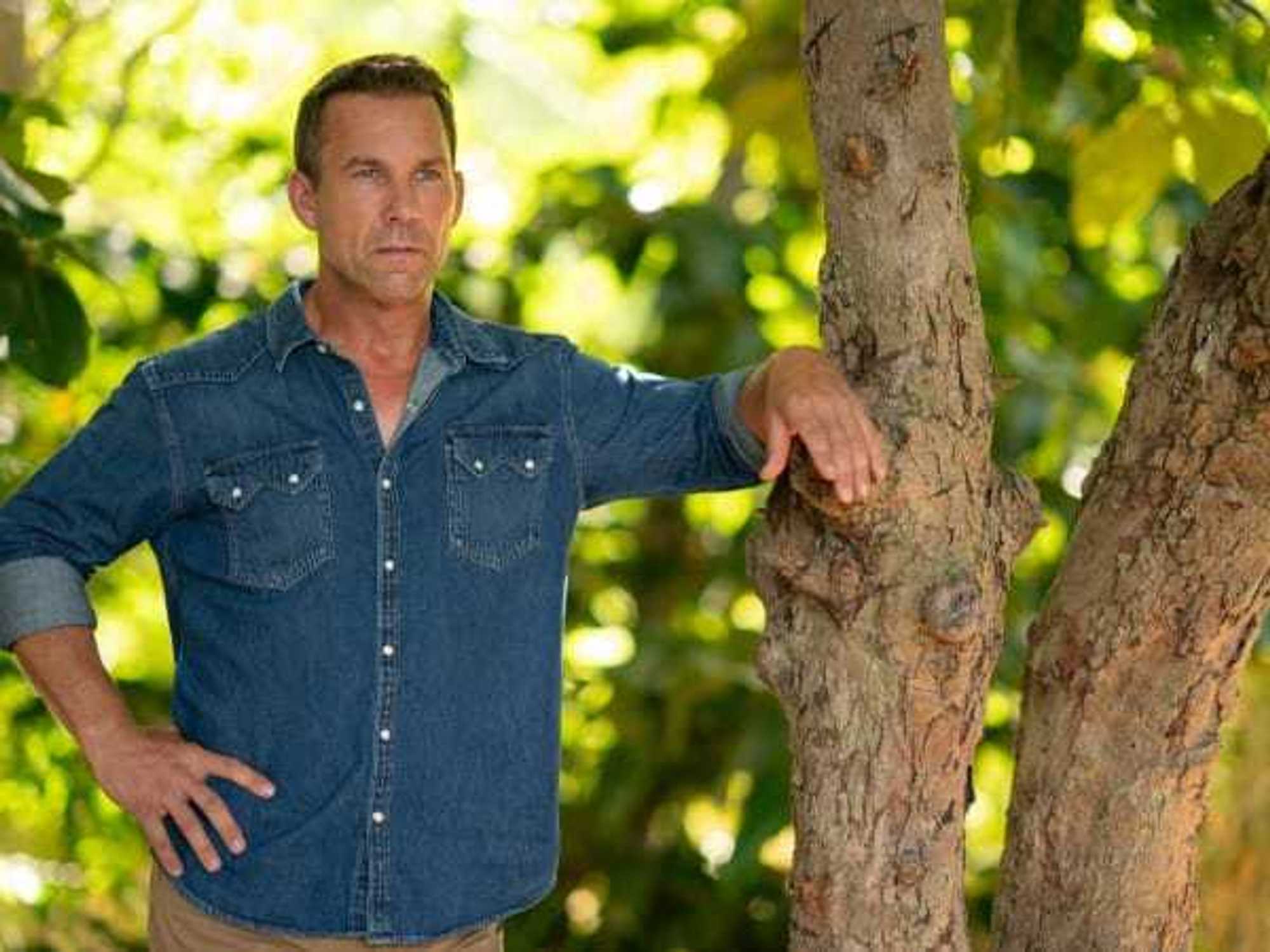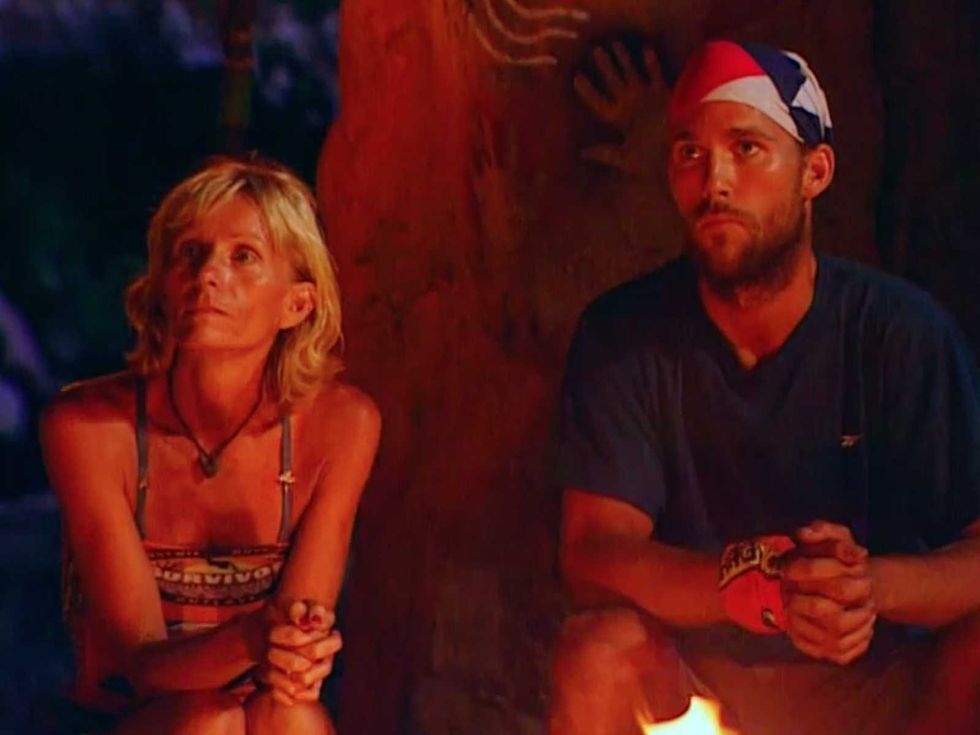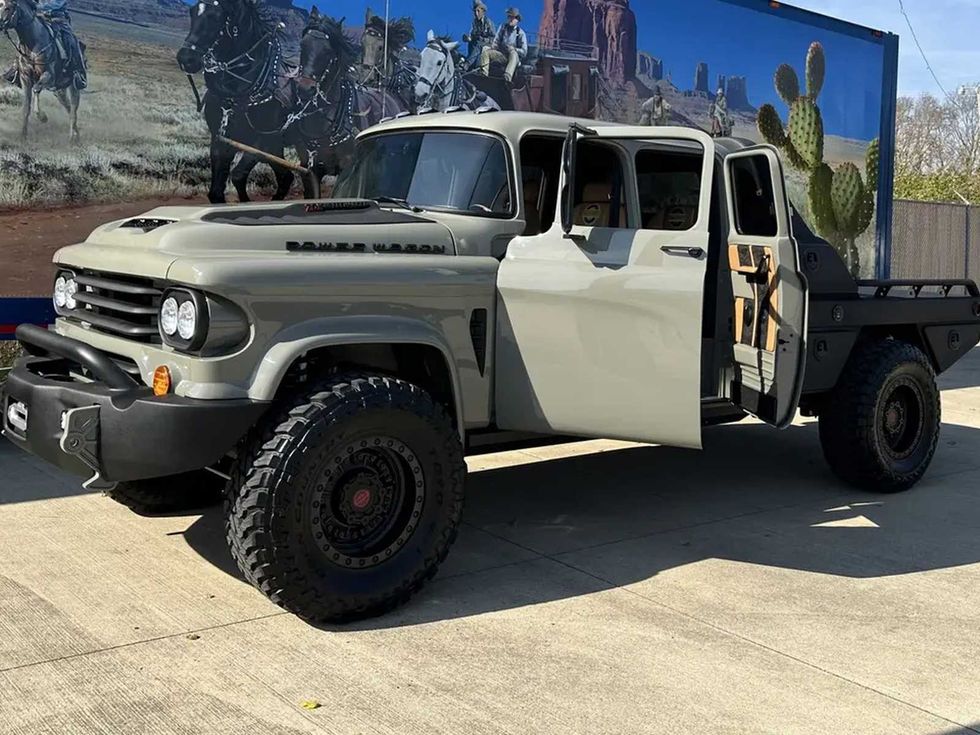reel to real
Rewind This: Local documentary recalls the glory days of VHS


 Rewind This crew.
Rewind This crew. Rewind This crew with Lloyd Kaufman of Troma Video and with Elvira (akaCassandra Peterson)
Rewind This crew with Lloyd Kaufman of Troma Video and with Elvira (akaCassandra Peterson)
One of the greatest aspects of being a film geek in Austin is not simply the fervor of the cinephile culture, but the wealth of differing forms that passion can take. In the case of filmmakers Josh Johnson, Topher Palmer and Carolee Mitchell, that form was a plastic rectangle housing foot upon foot of videotape.
Their love for film was most aptly encapsulated by elaborately painted cardboard sleeves and fuzzy tracking lines. They are collectors of VHS, a once prevalent cinematic delivery system now largely, sadly, forgotten. But now they’ve taken up arms (read: cameras) and have put together a documentary that seeks to renew public zeal in this lost format.
Rewind This is a real labor of love born of this city’s incredible penchant for catering to even the most esoteric of film geek tastes. Directors Johnson and Palmer, along with producer Mitchell, have traveled the globe speaking with VHS connoisseurs and industry legends alike, the latter including Troma Video’s Lloyd Kaufman and TV’s Elvira (aka Cassandra Peterson).
With 90% of the movie completed, they are now relying on a Kickstarter campaign to finance the last leg. We spoke with Johnson about the documentary, his love of VHS and the weirdest tapes he's ever seen.
---
So of all the documentary subjects you could have possibly chosen as a cinephile, why VHS tapes?
Most of my friends are film obsessives, and several of us were avidly seeking out VHS tapes in order to fill in gaps in film history that weren't being addressed by the studios in newer digital formats. The strange culture surrounding this world of video hunting was something that I thought would be interesting to document. In the process of discussing this concept with my partners, Christopher and Carolee, it became clear that there had been no definitive document of the video revolution and how we arrived where we are now. It immediately became a priority to make sure that story was told, and told properly.
What did VHS mean to you growing up?
It meant everything. It meant the ability to be exposed to a variety of ideas and worldviews without having to leave home. It meant being able to control my schedule by recording/re-recording programs at will. It meant being able to start making films at age seven without bankrupting my parents. Most importantly it meant being able to watch Gremlins 2: The New Batch more than 90 times in a single year.
If you are content to forget VHS and live without a VCR, then you are choosing to be content with forgetting a massive chunk of our collective cinematic history.
What are some of your favorite VHS covers?
I love so many but I'll try to limit this. The Wizard Video box for Mutant Hunt is a perfect example of artwork that captured my imagination in a way the film within said box never could. The Super Video release of Gang Wars is the kind of pure sleaze that you could never use for marketing purposes in today's world. A lot is made of the fact that box art has moved away from painted artwork to photos, but the Continental release of Return of the Alien’s Deadly Spawn is a case of a photographic still being used as a cover image in a really effective way.
Why do people still collect VHS today even though it is spectacularly out of date technology?
It has become obsolete to the point of being considered garbage by the general population. This his made it extremely affordable to obtain a lot of movies for very little money, and some people favor quantity over quality. Some people have a nostalgic connection to the way they experienced films in their youth, and watching videotapes transports them to a more innocent time. That said, I would say that the two main reasons that most VHS collectors are still purchasing titles on a regular basis would be a love for the artwork that adorned the packaging, and the fact that thousands of titles released on VHS can still only be seen that way.
At one point did your passion for VHS manifest into a documentary and what was your first step?
It wasn't really a passion for VHS so much as a passion for movies. The introduction of video expanded the reach of cinema to the point where the home is now the primary location for people to see movies. The impact of home video changed the film business and media culture in general to a profound degree. Home video changed my life for the better because it made movies accessible in a way they wouldn't have been had I been born at an earlier time; it seemed like a worthy topic to spend time investigating.
The first step was finding the partners to do it with. I got really lucky and was able to get involved with the perfect people to help make this abstract idea a reality. Their lives were also completely transformed by the ability to consume film in massive quantities. They are also pretty and smell nice.
How did you choose your interviewees?
Initially, it was just a list of the people we knew we needed to talk to. Once we started contacting people we found that every person we spoke to would recommend four other people who were perfect for the film that you we hadn't thought of. Sometimes people would catch wind of the project and reach out to us to be involved. In the beginning, it would usually start out with email being sent to individuals we wanted to interview, but at this point it would be difficult to even describe it as a clear process. The interviews get lined up through a variety of weird circumstances, which has been one of the more exciting aspects of this production.
How has the response been so far to the Kickstarter campaign?
Overwhelmingly positive. We raised more than 80% of our target in the first two days. The swell of enthusiasm that has greeted the arrival of the Kick Starter page is unexpected and truly moving. We are now considering what other avenues we might be able to explore if we exceed our stated goal; there are interviews and concepts we weren't sure we would be able to explore due to a shortage of time and funding but we're committed to the idea that every penny contributed to the campaign should go towards making the film more entertaining in a noticeable way. We want to make sure that everyone who is contributing to the campaign is rewarded with a finished product that shows off the fruits of their generosity.
What is one message you wish to communicate to your audience about VHS and VHS collecting?
I fully recognize that watching a film on videotape may not offer the most authentic reproduction of an artist’s vision. Having acknowledged that, I also think it is important to remember that most of the films released on VHS are still not available on DVD or Blu-Ray. We're now seeing some obscure titles hosted on various streaming services but there are still thousands more languishing on video.
Even torrent sites, which allow fans of obscure cinema to share rarities are missing essential titles because nobody has digitized a videotape and uploaded a file. Even if they were to do that it would still be the same transfer that was housed on that cassette, it would just be delivered via the internet versus a physical object. If you are content to forget VHS and live without a VCR, then you are choosing to be content with forgetting a massive chunk of our collective cinematic history. I encourage people to try and see past the limitations of the format and embrace the full range of opportunities for filmed entertainment floating out there in the world.
Did Austin offer any unique advantages for creating your doc?
It offered a ton of advantages. We funded our entire East and West Coast production trips by hosting an art show/auction at Rio Rita and a small screening at the Alamo Drafthouse. This entire project has been able to move forward because of the unique community in Austin that goes out of its way to be loving and supportive of filmmakers. I have serious doubts regarding whether or not we could have made it this far if we lived anywhere else. There are also a number of film luminaries and experts here who were able to give us interviews in the early stages. We had almost 30 hours of footage shot before ever leaving Texas.

 Tina Wesson and Colby Donaldson appear during the finale of Survivor: The Australian Outback.Photo Courtesy of CBS Entertainment
Tina Wesson and Colby Donaldson appear during the finale of Survivor: The Australian Outback.Photo Courtesy of CBS Entertainment The truck at Colby Donaldson designed that sold at auction for $1.5 million to an anonymous bidder.Photo Courtesy of Barrett-Jackson
The truck at Colby Donaldson designed that sold at auction for $1.5 million to an anonymous bidder.Photo Courtesy of Barrett-Jackson